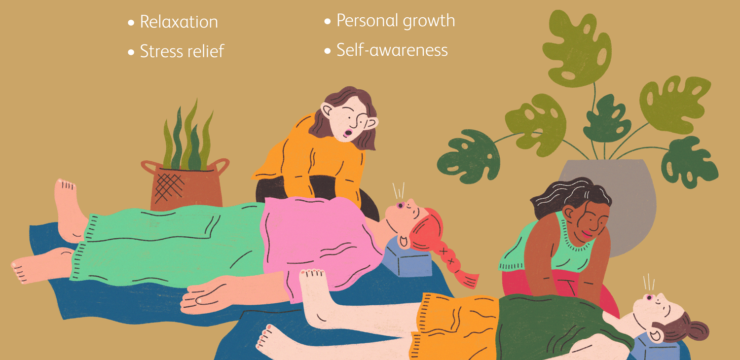Stress is an inevitable part of life, but when it becomes chronic, it can silently wreak havoc on your body and mind. Unlike acute stress, which is a short-term response to immediate challenges, chronic stress lingers, affecting everything from your heart health to your mental clarity. Understanding the dangers of chronic stress and learning how to manage it is crucial for long-term well-being. Here’s how to recognize the signs, understand the risks, and take control of your stress levels.
What Is Chronic Stress?
Chronic stress occurs when you’re exposed to stressful situations over an extended period without adequate relief or relaxation. It can stem from ongoing work pressure, financial worries, relationship issues, or health concerns. While a little stress can motivate you to meet deadlines or overcome obstacles, chronic stress keeps your body in a constant state of alert, leading to serious health consequences.
The Physical Impact of Chronic Stress
When you’re stressed, your body releases hormones like cortisol and adrenaline to prepare for “fight or flight.” While helpful in short bursts, prolonged exposure to these hormones can lead to a range of health problems.
- Heart Health: Chronic stress increases blood pressure and heart rate, contributing to a higher risk of heart disease, stroke, and hypertension.
- Immune Function: Stress weakens the immune system, making you more susceptible to illnesses like colds, flu, and infections.
- Digestive Issues: Stress can disrupt digestion, leading to issues like irritable bowel syndrome (IBS), acid reflux, and appetite changes.
- Sleep Disturbances: Persistent stress often leads to insomnia or poor-quality sleep, further exacerbating physical and mental health issues.
The Mental and Emotional Toll of Chronic Stress
Chronic stress doesn’t just affect the body—it takes a significant toll on your mental and emotional health as well.
- Anxiety and Depression: Prolonged stress can increase feelings of anxiety, sadness, and hopelessness, potentially leading to clinical depression.
- Cognitive Decline: Stress impairs concentration, memory, and decision-making abilities, leading to mental fog and decreased productivity.
- Mood Swings: Chronic stress can cause irritability, frustration, and mood swings, straining personal and professional relationships.
Recognizing the Signs of Chronic Stress
The symptoms of chronic stress can be subtle at first but become more pronounced over time. Common signs include:
- Persistent headaches or migraines
- Muscle tension or chronic pain
- Fatigue and low energy levels
- Changes in appetite or weight
- Difficulty sleeping or staying asleep
- Increased use of alcohol, caffeine, or unhealthy foods
- Feelings of overwhelm, irritability, or anxiety
How to Combat Chronic Stress
Managing chronic stress requires a holistic approach that addresses both the mind and body. Here are some effective strategies to help you regain balance and control.
- Prioritize Physical Activity: Exercise is one of the most effective ways to reduce stress. Activities like walking, yoga, swimming, or cycling release endorphins, which are natural mood boosters.
- Practice Mindfulness and Meditation: Mindfulness techniques, such as deep breathing, meditation, and progressive muscle relaxation, help calm the mind and reduce stress hormones.
- Get Quality Sleep: Establish a consistent sleep routine by going to bed and waking up at the same time each day. Create a relaxing bedtime environment and avoid screens before bed.
- Maintain a Healthy Diet: Eating nutrient-dense foods can help regulate mood and energy levels. Focus on whole grains, lean proteins, fruits, vegetables, and omega-3 fatty acids.
- Set Boundaries: Learn to say no to unnecessary commitments and set boundaries to protect your time and energy. Delegate tasks when possible and prioritize self-care.
- Connect with Others: Social support is essential for stress management. Talk to friends, family, or a therapist about your feelings and seek out activities that foster connection and relaxation.
- Limit Caffeine and Alcohol: While caffeine and alcohol may provide temporary relief, they can exacerbate stress in the long run. Opt for herbal teas, water, or other calming beverages instead.
Long-Term Strategies for Stress Resilience
Building resilience to stress involves long-term lifestyle changes and mindset shifts. Here’s how to create a foundation for lasting well-being:
- Practice Gratitude: Focusing on the positive aspects of your life can shift your perspective and reduce feelings of stress and anxiety.
- Engage in Hobbies: Make time for activities that bring you joy, whether it’s painting, gardening, reading, or playing music.
- Stay Organized: Keeping a structured schedule can help reduce feelings of overwhelm. Break tasks into manageable steps and celebrate small wins.
- Focus on What You Can Control: Let go of things beyond your control and focus on actionable steps you can take to improve your situation.
When to Seek Professional Help
If chronic stress is significantly impacting your daily life, relationships, or health, it’s important to seek professional support. Therapists, counselors, or healthcare providers can help you develop coping strategies, explore underlying issues, and, if necessary, recommend treatment options.
Final Thoughts
Chronic stress may be an invisible force, but its effects are very real. By recognizing the signs early and implementing effective coping strategies, you can protect your physical and mental health. Remember, managing stress isn’t about eliminating it entirely—it’s about finding balance, building resilience, and prioritizing self-care.
What’s one step you’ll take today to reduce stress and improve your well-being?





